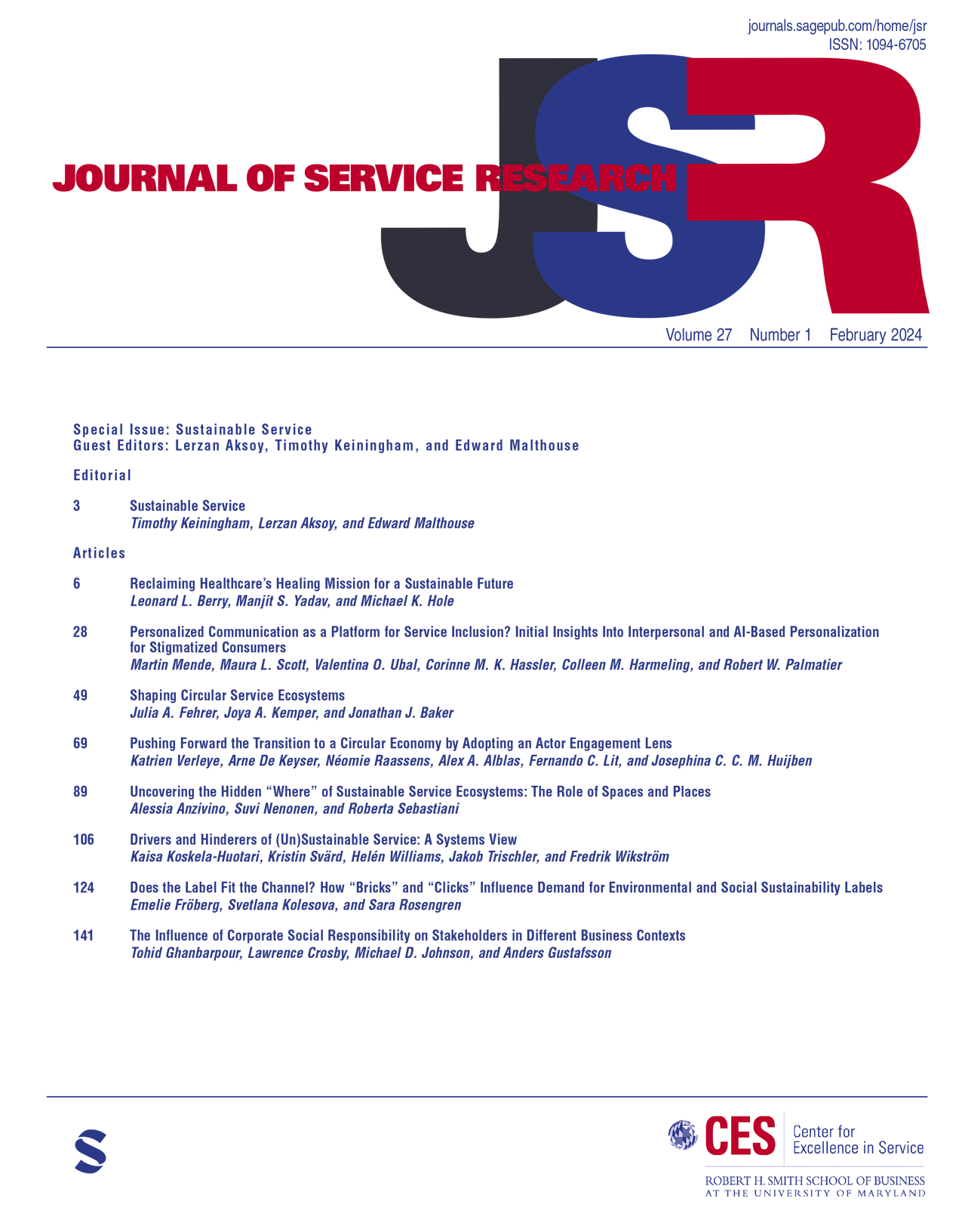个性化沟通是服务共融的平台?对受歧视消费者的人际和基于人工智能的个性化的初步见解
IF 8.6
2区 管理学
Q1 BUSINESS
引用次数: 0
摘要
尽管对服务包容性的呼吁越来越强烈,但关于如何设计和实施针对受歧视消费者的服务包容性的实证研究仍然很少。本文借鉴了个性化的关键问题(即谁为谁个性化什么?)来定制(a)营销信息的来源和(b)内容,以便更好地包括被污名化的消费者。作者在医疗保健/福利环境的三个实验中检验了这一观点。在信息源方面,研究结果表明,在人际互动中,服务公司可以采用同质性原则来更好地吸引被污名化的消费者(研究1)。相反,在消费者-人工智能(AI)互动(人与化身互动;此外,在消息内容方面,研究3探讨了公司如何以及在何种条件下利用思考人工智能和感受人工智能来提高服务包容性。最后,研究指出,预期消费者福祉是推动污名化消费者有效服务包容性的关键中介。研究结果不仅有助于形成新兴的服务包容性理论,也为服务业学者和管理者提供了关于人工智能在包容性服务中的作用的初步实证结果。本文章由计算机程序翻译,如有差异,请以英文原文为准。
Personalized Communication as a Platform for Service Inclusion? Initial Insights Into Interpersonal and AI-Based Personalization for Stigmatized Consumers
Although calls for inclusiveness in services are becoming more vigorous, empirical research on how to design and implement service inclusion for stigmatized consumers remains scant. This paper draws on key questions of personalization (i.e., who personalizes what for whom?) to tailor the (a) source and (b) content of marketing messages in order to better include stigmatized consumers. The authors examine this idea in three experiments in healthcare/well-being settings. In terms of message source, the results show that, in interpersonal interactions, service companies can employ the principle of homophily to better engage stigmatized consumers (Study 1). In contrast, homophily-inspired personalized messages to stigmatized consumers can backfire in the context of consumer-artificial intelligence (AI)-interactions (human-to-avatar interactions; Study 2). Moreover, in terms of message content, Study 3 explores how, and under which conditions, companies can leverage thinking AI versus feeling AI for improved service inclusiveness. Finally, the studies point to anticipated consumer well-being as a crucial mediator driving effective service inclusiveness among stigmatized consumers. The results not only contribute to an emerging theory of service inclusiveness, but also provide service scholars and managers with initial empirical results on the role of AI in inclusive services.
求助全文
通过发布文献求助,成功后即可免费获取论文全文。
去求助
来源期刊

Journal of Service Research
BUSINESS-
CiteScore
20.30
自引率
6.50%
发文量
28
期刊介绍:
The Journal of Service Research (JSR) is recognized as the foremost service research journal globally. It is an indispensable resource for staying updated on the latest advancements in service research. With its accessible and applicable approach, JSR equips readers with the essential knowledge and strategies needed to navigate an increasingly service-oriented economy. Brimming with contributions from esteemed service professionals and scholars, JSR presents a wealth of articles that offer invaluable insights from academia and industry alike.
 求助内容:
求助内容: 应助结果提醒方式:
应助结果提醒方式:


